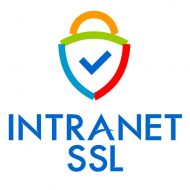General FAQ
Internal names include hosts and domains that cannot be registered or resolved in public DNS e.g., server01 or server.local, localhost, etc.
Internal names include hosts and domains that cannot be registered or resolved in public DNS e.g., server01 or server.local, localhost, etc.
Internal IP addresses cannot be registered for use on public networks. They include IPv4 or IPv6 addresses the Internet Assigned Numbers Authority (IANA) marks as reserved. The most common reserved ranges are 10.0.0.0-10.255.255.255, 172.16.0.0-172.31.255.255, and 192.168.0.0- 192.168.255.255. More information is available here.
Technical Information
This FAQ shows how to create a Certificate Signing Request (CSR) file with SAN values on the webserver using OpenSSL.
For creating CSR with SAN values (X.509 v3 Extension) it’s important to create a configuration file with the required certificate details. Execute following command in openssl.
openssl req -newkey rsa:2048 -nodes -keyout pvtkey.cer -config config.cnf -out csr.txt -utf8
It will create a Private key (pvtkey.cer) and CSR file (csr.txt).
Sample Configuration file (config.cnf)
[req]
prompt = no
distinguished_name = dn
req_extensions = ext
[dn]
CN = 192.168.2.23
O = Abc Corporation
L = Sydney
ST = New South Walse
C = AU
[ext]
subjectAltName = @alt_names
[alt_names]
IP.1 = 192.168.2.23
IP.2 = 10.12.4.122
DNS.1 = 192.168.2.23
DNS.2 = 10.12.4.22
DNS.3 = sms.abc.local
DNS.4 = localhost
It will generate CSR with CN=192.168.2.23 and 3 SAN values: 10.12.4.122, sms.abc.local and localhost.
Notice that when IP address is there in CN or SAN, we need to put its value against both IP Address and DNS. For others (URL, Servername etc) only DNS value is required.
Leave a Reply
Internal names include hosts and domains that cannot be registered or resolved in public DNS e.g., server01 or server.local, localhost, etc.
Internal names include hosts and domains that cannot be registered or resolved in public DNS e.g., server01 or server.local, localhost, etc.
Internal IP addresses cannot be registered for use on public networks. They include IPv4 or IPv6 addresses the Internet Assigned Numbers Authority (IANA) marks as reserved. The most common reserved ranges are 10.0.0.0-10.255.255.255, 172.16.0.0-172.31.255.255, and 192.168.0.0- 192.168.255.255. More information is available here.
Leave a Reply
It is recommended to use CSR while requesting Intranet SSL. When you give certificate details then private key is sent over email. This may pose security risk. But generation of CSR with SAN values is not easy. So, steps are shared for the same.
Good question.
It is always recommended to generate CSR on your web server and share with us. This is because the private key generated during the CSR generation remains on your server, within your premises.
On the other hand, if you give certificate details to us, we generate the CSR. It is called Auto-CSR. During this process, private key is generated on our machine. When we ship the Intranet SSL to you, we send the SSL certificate along with the private key. This method is slightly risky because the private key can be intercepted by someone when it is sent through email.
But generation of CSR for Intranet SSL poses some technical challenges. Reason is that modern browsers expect the CSR to have require SAN values correctly specified.
For example, if the Common Name is “abc.local” then the CN=abc.local and SAN value should be DNS=abc.local. But it is not easy to generate CSR with SAN values on Windows or Linux.
Another issue comes when the certificate is to be issued to an IP address. In this case SAN should have two values. They are DNS=[IP-address] and IP=[IP-Address].
If any of these SAN values are not specified while generating the CSR then browser gives ‘Certificate not Trusted’ error.
Of course, we have shared the steps to generate CSR with SAN values. Link is given below.
https://intranetssl.net/ufaq/how-to-create-the-csr-with-san-in-windows-iis/
https://intranetssl.net/ufaq/how-to-create-csr-with-san-values-using-openssl/
Leave a Reply
Installation FAQ
It is recommended to use CSR while requesting Intranet SSL. When you give certificate details then private key is sent over email. This may pose security risk. But generation of CSR with SAN values is not easy. So, steps are shared for the same.
Good question.
It is always recommended to generate CSR on your web server and share with us. This is because the private key generated during the CSR generation remains on your server, within your premises.
On the other hand, if you give certificate details to us, we generate the CSR. It is called Auto-CSR. During this process, private key is generated on our machine. When we ship the Intranet SSL to you, we send the SSL certificate along with the private key. This method is slightly risky because the private key can be intercepted by someone when it is sent through email.
But generation of CSR for Intranet SSL poses some technical challenges. Reason is that modern browsers expect the CSR to have require SAN values correctly specified.
For example, if the Common Name is “abc.local” then the CN=abc.local and SAN value should be DNS=abc.local. But it is not easy to generate CSR with SAN values on Windows or Linux.
Another issue comes when the certificate is to be issued to an IP address. In this case SAN should have two values. They are DNS=[IP-address] and IP=[IP-Address].
If any of these SAN values are not specified while generating the CSR then browser gives ‘Certificate not Trusted’ error.
Of course, we have shared the steps to generate CSR with SAN values. Link is given below.
https://intranetssl.net/ufaq/how-to-create-the-csr-with-san-in-windows-iis/
https://intranetssl.net/ufaq/how-to-create-csr-with-san-values-using-openssl/

Leave a Reply